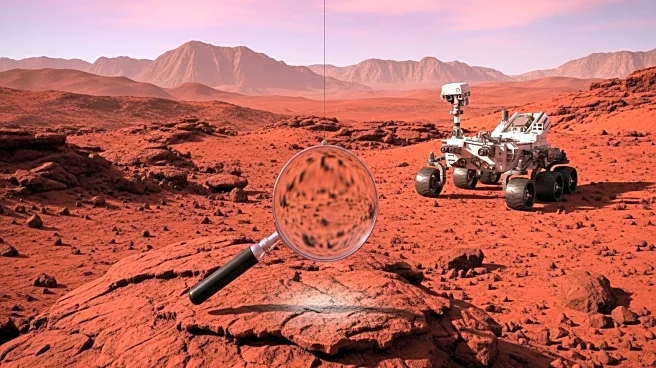What's Happening?
NASA has released new findings from the Perseverance Mars rover, revealing potential biosignatures in a rock sample named Sapphire Canyon. This discovery, located in Jezero Crater, suggests the presence of ancient microbial life on Mars. The sample showed signs of vivianite and greigite, minerals associated with microbial activity on Earth. While the data is promising, it does not confirm life, as further tests are needed to rule out nonorganic origins. NASA is collaborating with scientists worldwide to analyze the data and explore the implications of this finding.
Why It's Important?
The discovery of potential biosignatures on Mars is a significant milestone in the search for extraterrestrial life. It could reshape our understanding of life's existence beyond Earth, impacting scientific research and space exploration strategies. If confirmed, this finding may lead to increased funding and interest in Mars missions, influencing public policy and international collaboration in space exploration. The potential discovery of life on Mars could also inspire technological advancements and innovations in astrobiology.
What's Next?
NASA plans to conduct further tests and analyses to confirm the presence of life on Mars. The agency will continue sharing data with the global scientific community to validate findings and explore the possibility of microbial life. Future missions may focus on collecting more samples and deploying advanced instruments to study Mars's geology and potential biosignatures. The scientific community is expected to engage in discussions and research to understand the implications of this discovery and its impact on space exploration.









